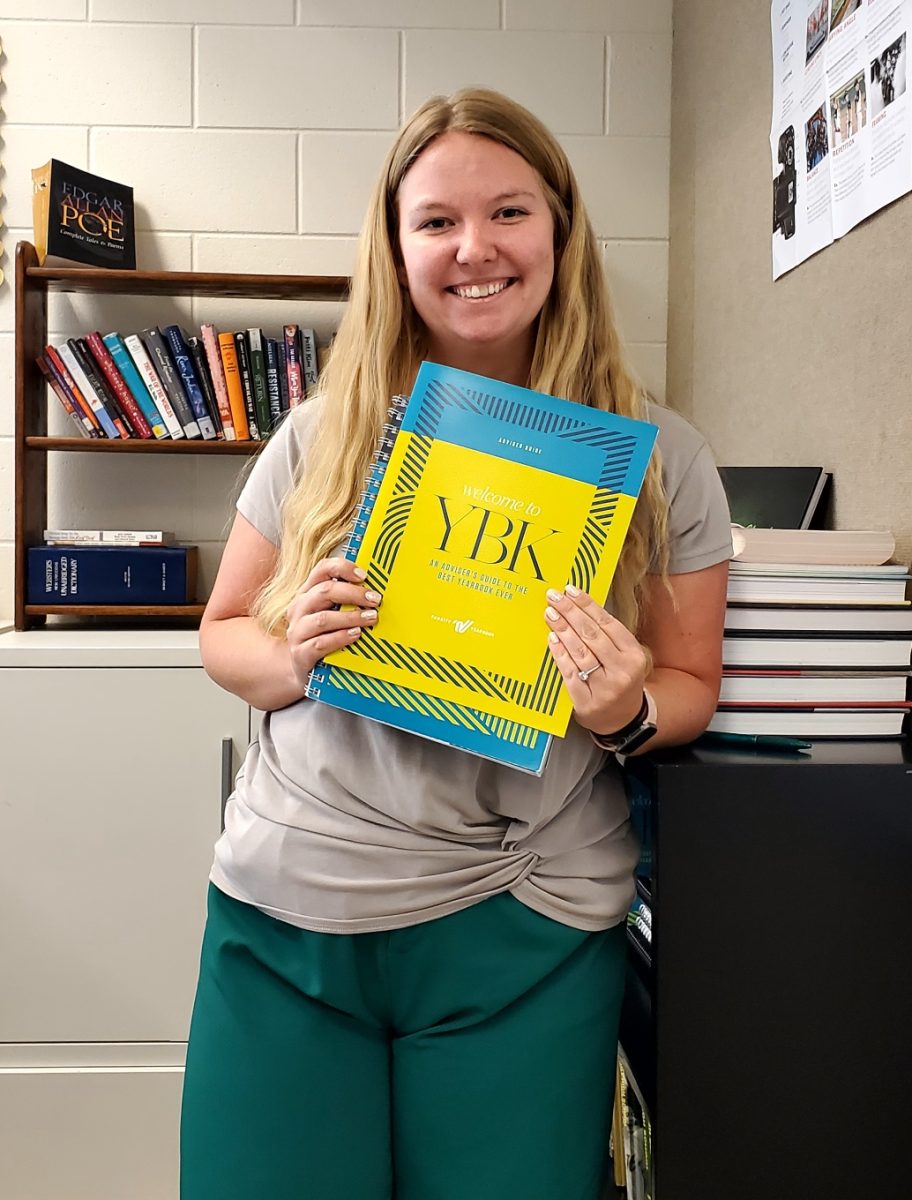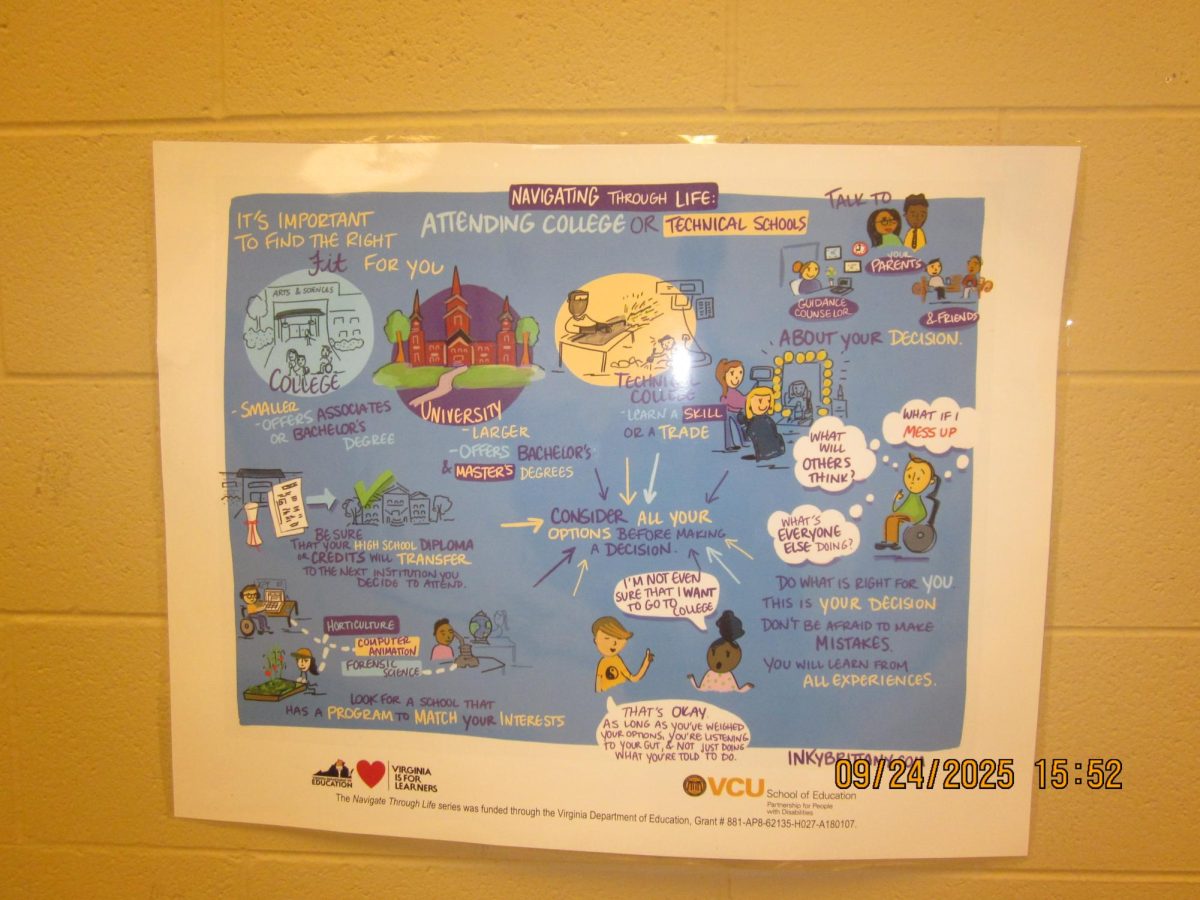

Clover Hill High School opened its doors to students in 1972 on 13900 Hull Street Rd, but this once small school has transformed drastically over the years, undergoing change in its building, demographic, population, and work ethic.
Back then, Clover Hill lacked the diversity it has today and it did not consist of a large variety of ethnic groups. Counselor Tripp Lawson, Clover Hill Class of 1996, remembers the two distinct groups at the Hill in the 90s.
“It was kind of a mix of rural and country club,” Lawson said.
Clover Hill has gone through numerous changes, such as becoming a more diverse environment for students. Junior Will Lohr appreciates the present diversity at Clover Hill and all the groups that are represented.
“It’s very mixed, there’s a lot of different groups of people, it’s like a melting pot,” Lohr said.
While the diversity of Clover Hill has increased throughout the years, unification has trended downwards. In the past, students at Clover Hill that were in different extracurriculars mingled with each other creating a cohesive school environment. Now, students describe the current Clover Hill as separated and closed off. Math teacher Zachary Calhoun, Class of 2014, emphasizes the unity during his time as a student on the Hill.
“We had a great connection throughout a bunch of things,” said Calhoun.
These changes in diversity have affected the students in a very positive way by opening up the students to prepare for the real world.
“There is a lot of opportunity to immerse yourself in different cultures and gain new perspectives,” Lohr said.
In the early days of Clover Hill when Clover Hill was not as diverse the students were not as acclimated to a diverse society.
“It’s all you knew, you know? I didn’t probably understand diversity until I went away to college because I grew up here sheltered,” Lawson said.
According to the Illinois State board of education, work ethic tells future employers what to expect from the student on the job. Indicating how work ethic of students correlates with their culture success in their careers.
“I think a lot of work ethic is first instilled at home, schools can’t be the one responsible for work ethic,” Lawson said.
The current students of Clover Hill’s attitude toward school work has been directed to just being right or wrong.
“The mentality of as long as the work gets done it doesn’t necessarily matter how it gets done,” Calhoun said.
School work ethic has tended to decrease through the years from outside factors. The work ethic while being described as being taught by parents schools have not helped in creating a better work ethic.
“We’ve kind of, at the school level, backed off some of that and it’s too easy to blame Covid,” Lawson said.
Some teachers have a difficult time getting students engaged to learn because some students only want to finish the work with disregard for proper education.
“Students want to just have to have the answer be done with the work not necessarily understand what it is that they’re doing,” Calhoun said.
Even from a student perspective, peers are not as driven to do their work as.
“People don’t really try extra at their work,” Lohr said. “They just don’t really care.”
Technology, while being an aid for students, in helping achieve new levels of learning aren’t always as useful as they seem.
“Having those resources out there but not knowing how to use them,” Calhoun said.
The Hill has come a long way from how it used to be, and it only continues to grow in numerous ways.









anonymous • Feb 7, 2025 at 10:17 am
This article tells us about a little bit of the history at clover hill. Said by one of the staff members that work at clover hill now, it is believed that students do not want to actually learn. They just want to get the work done and over with. One of the causes for this that they stated in the article was the new use of technology. In the article it states that technology can be an aid for students, but can also be distracting. I agree with this statement because social media does have a play into this. Social media can make people play “follow the leader” and cause themselves to do bad things and/or not pay attention in school.